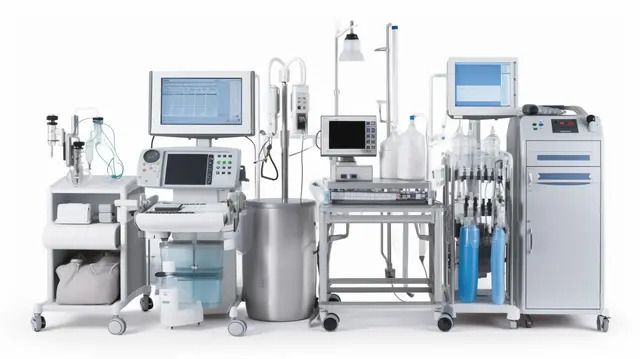The digital marketplace has grown exponentially in recent years, extending its grasp into sectors that were once heavily reliant on in-person transactions. The medical supply industry, crucial for healthcare, is no exception. selling medical supplies online has become not just a possibility, but a thriving business model. Aspiring medical supply entrepreneurs or established businesses looking to transition to online sales can use this guide to pave the way to a successful online presence.
Understanding the Market
Before you start gathering your supplies and building an online platform, it’s vital to understand the nuances of the medical supply market. The industry has its complexities, including strict regulatory requirements and guidelines, which can vary depending on the region. High-quality products, competitive pricing, and consumer trust are the pillars that uphold this market.
Market Research:
Conduct thorough market research to identify demand and trends. Look for the specific categories and items that have a larger market share and assess your competition.
Regulation Compliance:
Familiarize yourself with the medical regulations and standards that apply to the regions where you plan to sell. Ensure that your products meet these requirements, and communication with regulatory bodies should be ongoing as part of your business operations.
Competitive Analysis:
Explore the strategies your competitors are using. Understand their pricing models, customer service, and marketing tactics to benchmark your own strategy.
Setting Up Your E-commerce Platform
Now that you’re equipped with market insights, you can proceed with setting up your online store. Your e-commerce platform can be the digital face of your business, and it’s where brand reputation and customer experience will take root.
Choosing the Right Platform:
Select an e-commerce platform that suits the scale and specific requirements of selling medical supplies. Consider platforms that support detailed product descriptions, have robust security features, and allow for easy transactions.
Digital Security:
Given the sensitive nature of medical data and the stringent privacy concerns in the healthcare sector, your online platform must be highly secure. Integration with secure payment gateways and compliance with data protection laws are non-negotiable.
User Experience:
Design your platform with your customers in mind. A user-friendly interface, clear product categorization, and a straightforward checkout process are essential for ensuring a positive customer experience.
Marketing and Sales Strategy
The success of your online medical supply business will depend on your ability to reach and engage with your target audience effectively. A well-crafted marketing and sales strategy is key to driving traffic and converting that traffic into sales.
Search Engine Optimization (SEO):
Optimize your online store for search engines to improve visibility. Use relevant keywords in your product descriptions and meta tags, and create high-quality content that provides value to your audience.
Content Marketing:
Develop a content marketing strategy that can help establish your online store as a trusted source of information within the medical supply industry. This can include blogs, whitepapers, and instructional videos.
Digital Advertising:
Leverage digital advertising channels, such as pay-per-click (PPC) campaigns, to increase brand awareness and drive targeted traffic to your online store.
Customer Service:
Provide exceptional customer service, offering support and advice on product selection and usage. Transparency and responsiveness can build loyalty and encourage repeat business.
Logistics and Operations
Efficient logistics and operations are the backbone of any successful e-commerce business, especially one dealing with medical supplies.
Inventory Management:
Implement a robust inventory management system to keep track of stock levels, monitor sales trends, and ensure that you never run out of critical supplies.
Order Fulfillment:
Hold your business to high standards when it comes to order fulfillment. Timely delivery is crucial, especially when it involves essential medical products.
Shipping and Handling:
Partner with reliable shipping services that specialize in handling medical goods. Ensure that your packaging conforms to safety standards and regulations.
Returns and Refunds:
Have clear policies for returns and refunds. Always prioritize the safety and well-being of the end-users when dealing with medical supplies.
Building Credibility and Trust
In the medical supply industry, trust is everything. You must reassure your customers that they are purchasing from a reputable and reliable supplier.
Certifications and Accreditations:
Obtain relevant certifications and accreditations. Displaying these on your website can provide assurance to customers that you meet industry standards.
Customer Reviews:
Encourage satisfied customers to leave reviews on your products and services. Positive reviews can be powerful in building trust.
Transparency:
Be transparent about product information, pricing, and business practices. Provide detailed descriptions and clear terms and conditions for all transactions.
Data Security:
Handle customer data with the utmost care. Implement strict data security measures and be transparent about your privacy policy.
Conclusion
Selling medical supplies online can be a rewarding venture both economically and in terms of the significant impact it can have on global healthcare. With a solid understanding of the market, a robust e-commerce platform, an effective marketing strategy, efficient operations, and an unwavering commitment to credibility and trust, you can provide a valuable service to customers in need of critical medical supplies. Your dedication to quality, compliance, and customer satisfaction will set you apart in this demanding and worthy industry.
The Ultimate Guide to Selling Medical Supplies Online

Categories:


